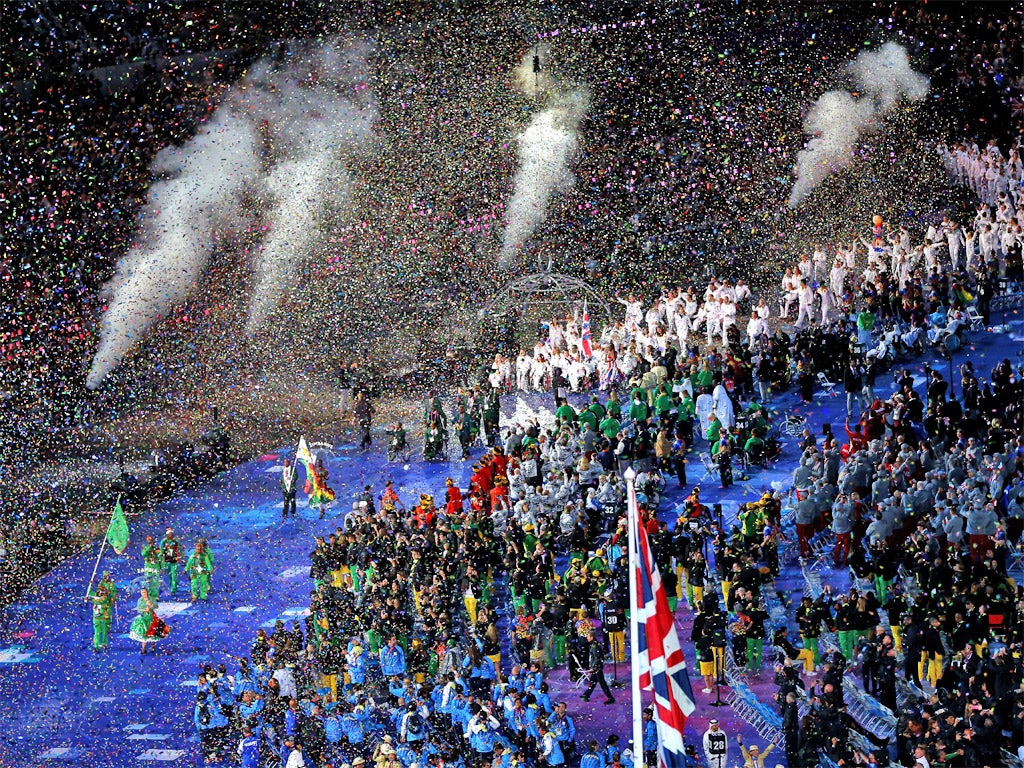Alex Brooker: Don't get hung up about being PC. They're tough, this is real sport – enjoy it

People should not walk on eggshells around the disabled.
When I was born, my right foot was twisted, and so it was amputated. I was also born with hand deformities. Although I don't like using that word (I prefer saying "hand issues" or "hand disabilities"), it would be a shame to have a big list of what people can and cannot say, and the Paralympics could help us in getting rid of those apprehensions of how to treat disabled people – this awkwardness that some people can feel.
While we are advanced in this country in terms of our attitudes towards disability, there is still a level of unease about what you can and can't say.
In everyday life, when someone falls out of a wheelchair, you hear a gasp of horror. But if you watch the wheelchair rugby you'll see that is par for the course; they simply pick themselves up and play on. When I see someone in a wheelchair, even I do a double-take. And as someone who has a prosthetic leg, when I see someone not wearing their legs I think "Oh my god". Some people look at me because they've never seen somebody who looks like me, and that's just human nature – it's not offensive. You might stare at an able-bodied person if they're dressed in an unusual way.
What matters is that your initial curiosity doesn't make you feel ashamed or embarrassed about what you've done, and prevent you from talking to disabled people.
As the Paralympics unfold, we'll see athletes with incredible stories behind their achievements, and it is not necessarily patronising to celebrate that. But we shouldn't necessarily sympathise with Paralympians who underperform. These are real sports – that much will be quickly apparent – and we should treat them as such. If someone is expected to win gold and they come eighth, people should ask why, because this is not just a second-rate Olympics.
This next fortnight has the potential to be a huge moment for disabled people in Britain: we can really add to people's understanding of disability. We are just the same as everybody else. Just because you're disabled doesn't mean you cannot achieve great things.
It is rare for people with disabilities to be exposed to such a mainstream audience. When I grew up, I never saw disabled presenters on television, and to an extent that is still the case. The role models just didn't exist.
Of course there is always the worry that there will be little lasting impact from this Games. But the signs so far are good: the buzz has begun, there have never been so many tickets sold to a Paralympics, and there is far greater media coverage than there was for Beijing.
My father drilled it into me as a kid that I was no different from anybody else, and that I wouldn't be getting any special treatment in life. And though I whinged for a while, I'm grateful for that advice now.
Alex Brooker, 28, is a Paralympics presenter for Channel 4
Join our commenting forum
Join thought-provoking conversations, follow other Independent readers and see their replies
Comments